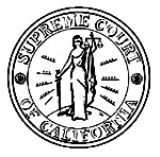
California v. Freeman
Encyclopedia
| California v. Freeman | ||||||||
|---|---|---|---|---|---|---|---|---|
Supreme Court of California |
||||||||
| August 25, 1988 | ||||||||
EWLINE
|
||||||||
| Holding | ||||||||
| California pandering statute did not criminalize the hiring of actors for non-obscene adult films. | ||||||||
| Court membership | ||||||||
|
||||||||
| Case opinions | ||||||||
|
||||||||
| Laws applied | ||||||||
| U.S. Const. amend. I First Amendment to the United States Constitution The First Amendment to the United States Constitution is part of the Bill of Rights. The amendment prohibits the making of any law respecting an establishment of religion, impeding the free exercise of religion, abridging the freedom of speech, infringing on the freedom of the press, interfering... ; Cal. Penal Code California Penal Code The Penal Code of California forms the basis for the application of criminal law in the American state of California. It was originally enacted in 1872 as one of the original four California Codes, and has been substantially amended and revised since then.... §§ 266I, 647 |
California v. Freeman was the criminal prosecution of Harold Freeman, a producer and director of pornographic films, by the U.S. state
U.S. state
A U.S. state is any one of the 50 federated states of the United States of America that share sovereignty with the federal government. Because of this shared sovereignty, an American is a citizen both of the federal entity and of his or her state of domicile. Four states use the official title of...
of California
California
California is a state located on the West Coast of the United States. It is by far the most populous U.S. state, and the third-largest by land area...
. Freeman was arrested in 1987 for hiring adult actors, which the prosecution interpreted as pimp
Pimp
A pimp is an agent for prostitutes who collects part of their earnings. The pimp may receive this money in return for advertising services, physical protection, or for providing a location where she may engage clients...
ing, as part of an attempt by California to shut down the pornographic film industry. The prosecution's interpretation was ultimately rejected on appeal by the California Supreme Court. Prior to this decision, pornographic movies had often been shot in secret locations.
Freeman was initially convicted, and lost on appeal to the California Court of Appeal
California Court of Appeal
The California Courts of Appeal are the state intermediate appellate courts in the U.S. state of California. The state is geographically divided into six appellate districts...
. The trial judge, however, thought jail would be an unreasonably harsh penalty for Freeman's conduct, and sentenced him to probation, despite the fact that this was explicitly contrary to the statute. The State appealed this sentence but lost.
Freeman appealed to the California Supreme Court, which subsequently overturned his conviction, finding that the California pandering statute was not intended to cover the hiring of actors who would be engaging in sexually explicit but non-obscene performances. Freeman could only have been lawfully convicted of pandering if he had paid the actors for the purpose of sexually gratifying himself or the actors. The court relied upon the language of the statute for this interpretation, as well as the need to avoid a conflict with the First Amendment
First Amendment to the United States Constitution
The First Amendment to the United States Constitution is part of the Bill of Rights. The amendment prohibits the making of any law respecting an establishment of religion, impeding the free exercise of religion, abridging the freedom of speech, infringing on the freedom of the press, interfering...
right to free speech. The court viewed Freeman's conviction as "a somewhat transparent attempt at an 'end run' around the First Amendment and the state obscenity laws."
The State of California unsuccessfully tried to have this judgment overturned by the United States Supreme Court. Justice Sandra Day O'Connor
Sandra Day O'Connor
Sandra Day O'Connor is an American jurist who was the first female member of the Supreme Court of the United States. She served as an Associate Justice from 1981 until her retirement from the Court in 2006. O'Connor was appointed by President Ronald Reagan in 1981...
denied a stay of the California Supreme Court's judgment, finding that its ruling was founded on an independent and adequate basis of state law. The full Court subsequently denied the petition for review.
As a result of this precedent, the making of hardcore pornography
Hardcore pornography
Hardcore pornography is a form of pornography that features explicit sexual acts. The term was coined in the second half of the 20th century to distinguish it from softcore pornography. It usually takes the form of photographs, often displayed in magazines or on the Internet, or films. It can also...
was effectively legalized in California.
In 2008, in the case of New Hampshire v. Theriault, the New Hampshire Supreme Court
New Hampshire Supreme Court
The New Hampshire Supreme Court is the supreme court of the U. S. state of New Hampshire and sole appellate court of the state. The Supreme Court is seated in the state capital, Concord. The Court is composed of a Chief Justice and four Associate Justices appointed by the Governor and Executive...
, citing Freeman, upheld the distinction between pornography production and prostitution in that state.
See also
- List of United States Supreme Court cases, volume 488
- List of United States Supreme Court cases
- Lists of United States Supreme Court cases by volume
- List of United States Supreme Court cases by the Rehnquist Court
Cases
- People v. Freeman, 46 Cal.3d 419 (1988)
- California v. Freeman, 488 U.S. 1311 (1989)
- New Hampshire v. Theriault (2008)

